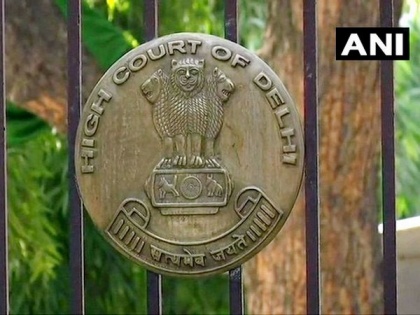PIL in Delhi HC seeking inclusion of RTE Act as compulsory subject in law college
By ANI | Updated: March 13, 2023 23:15 IST2023-03-13T17:43:49+5:302023-03-13T23:15:29+5:30
A Public Interest Litigation (PIL) has been moved before the Delhi High court seeking a direction to the Bar ...

PIL in Delhi HC seeking inclusion of RTE Act as compulsory subject in law college
A Public Interest Litigation (PIL) has been moved before the Delhi High court seeking a direction to the Bar Council of India (CBI) to consider introducing the Right of Children to Free and Compulsory Education Act, 2009 (RTE Act, 2009) as a compulsory subject for students of all law colleges and universities.
The division bench headed by the chief justice is likely to hear the PIL on Tuesday.
The NGO Social jurist has filed the PIL through advocates Ashok Agarwal and Kumar Utkarsh.
It is stated that the petitioner made a representation to BCI on February 15, 2023 to consider the request before the next academic session commences.
The PIL has been filed against BCI, Delhi University, Jamia Millia Islamia and Guru Gobind Singh IP University.
It is submitted that RTE Act, 2009 is a key child's right for education and development of all children in the society. Unfortunately, RTE Act, 2009 has not been implemented in its true letter and spirit.
Children's population is around 40-45 per cent of the total population. The justiciability of the right to education places a great responsibility on lawyers - for lawyers alone can take violations to Court, the PIL stated.
Therefore, a great responsibility on legal education is to educate and equip lawyers first to investigate situations in which the right to education is liable to be violated, to recognize violations, and finally, to seek justice through legal tools for the child's right to education, the petition stated.
It was also submitted that the respondent Bar Council of India in terms of Part IV- Rules of Legal Education of the Bar Council of India Rules is empowered with the responsibilityof prescribing compulsory subjects in Centres of Legal Education ie law colleges and universities.
It was further submitted that RTE Act, 2009 needs to be implemented in its true letter and spirit and the same can happen only if, the Right of Children to Free and Compulsory Education Act, 2009 (RTE Act, 2009) is taught as a compulsory subject in Centres of Legal Education.
The respondent BCI gave no response on the representation on February 15. Copies of the same were also given to other respondents.
BCI's inaction to consider petitioner representation dated February 15, 2023 and reminder letter March 2 to consider introducing the RTE Act, 2009 as a compulsory subject in the curriculum for students in all law colleges and universities violates fundamental right to education as guaranteed to lakhs of children under Articles 14, 21 and 21-A of the Constitution of India and the provisions of the RTE Act, 2009, the PIL submitted.
( With inputs from ANI )
Disclaimer: This post has been auto-published from an agency feed without any modifications to the text and has not been reviewed by an editor
Open in app